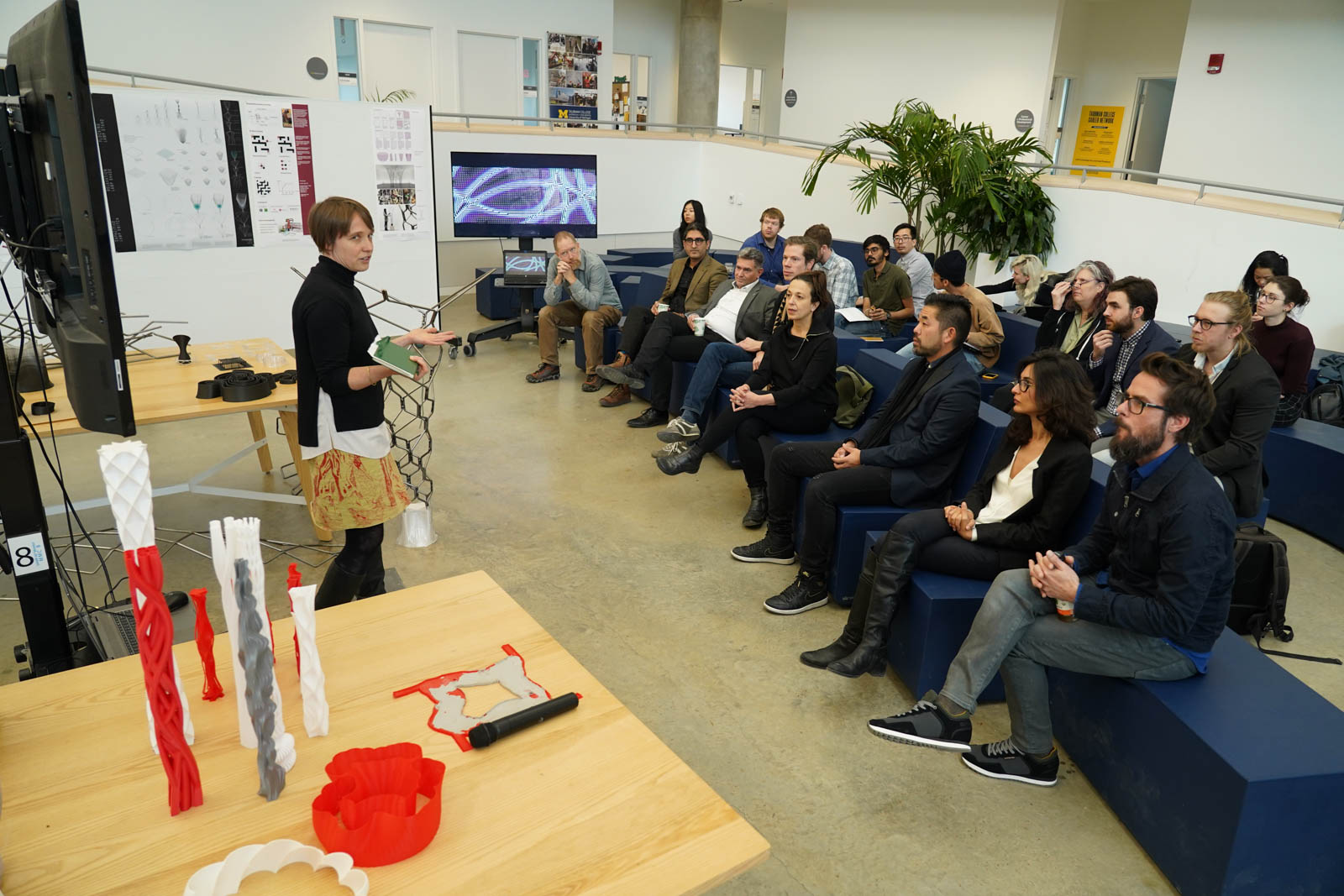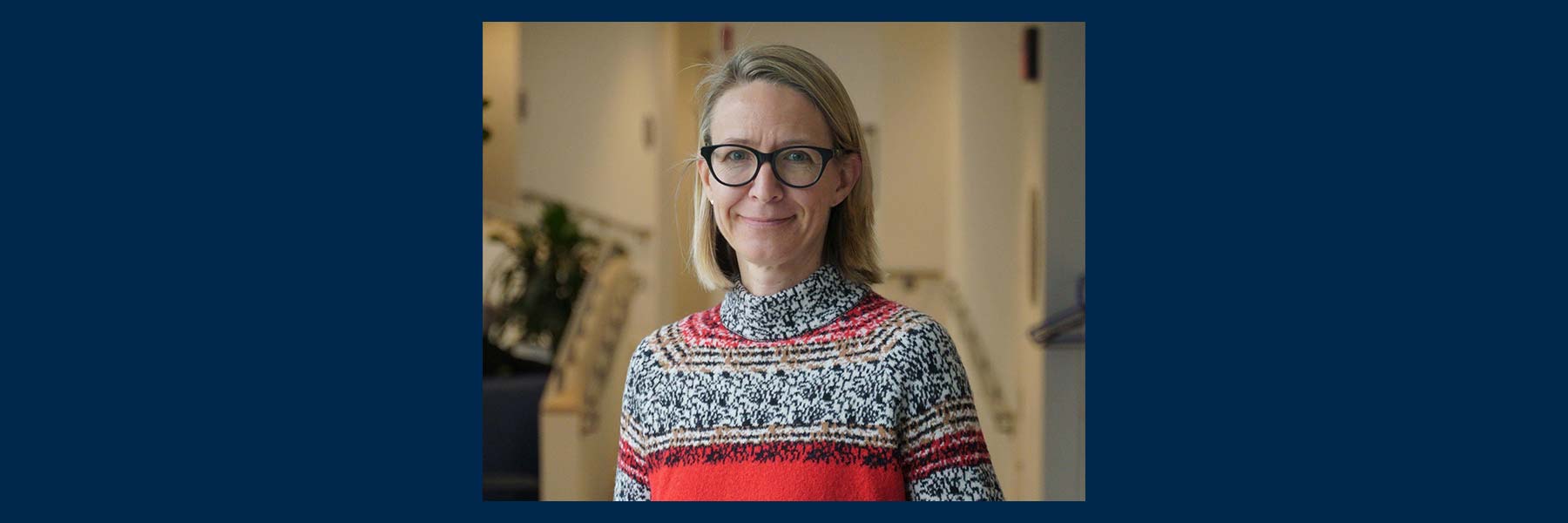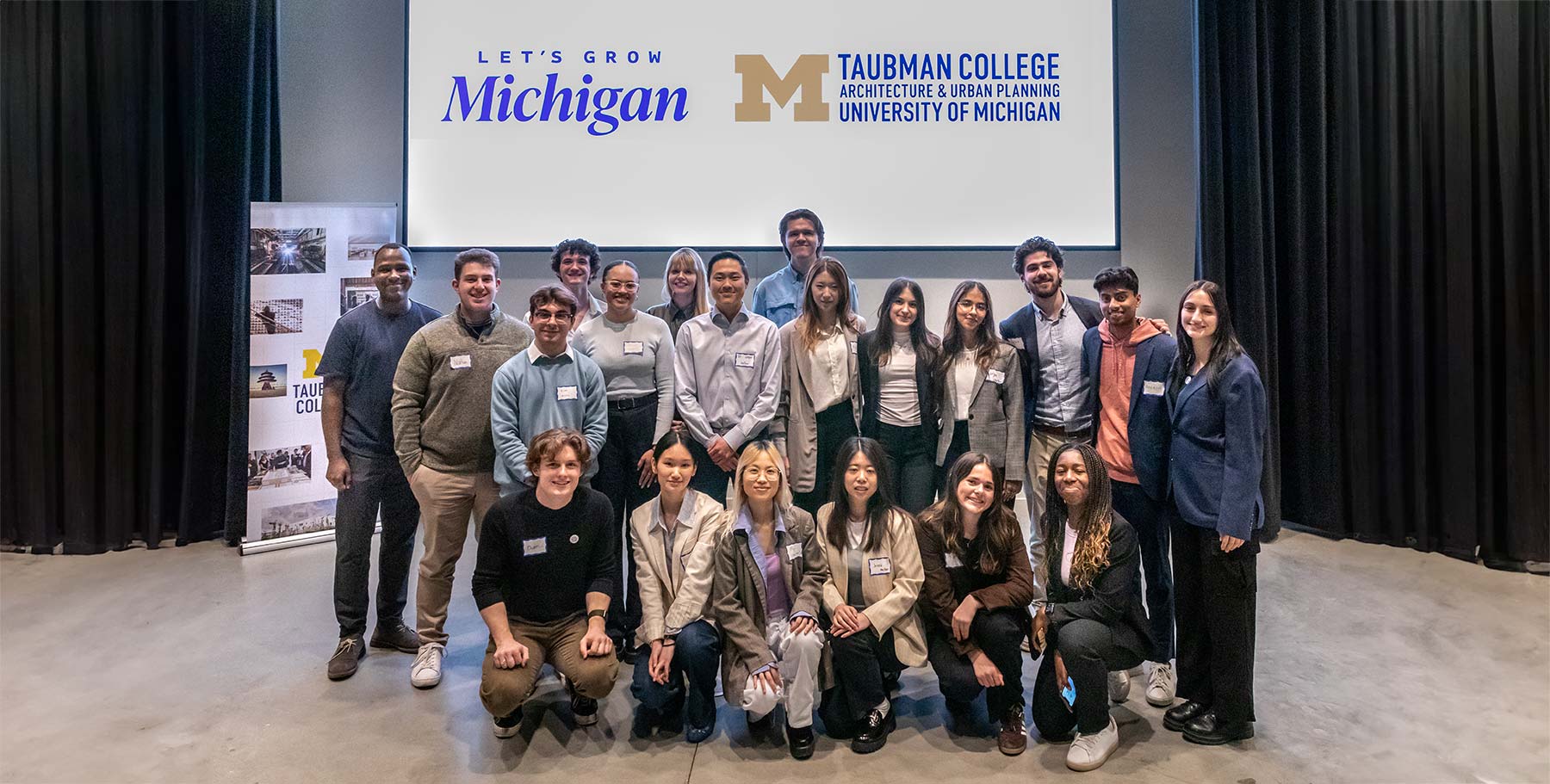Recently, the annual 5-Seminar-Strong Review brought together all of the M.S. in Digital and Material Technologies program’s fall seminar courses for a discussion about the approaches, results, challenges, and discoveries from the term. The conversation highlighted exemplary projects and the breath of conversations taken on within the class, with a focus on the wider implications of moving forward and pushing with work out into the built world. Thomas Wehrle (ERNE AG Holzbau) and Alvin Huang (Synthesis Design + Architecture / USC) served as reviewers.
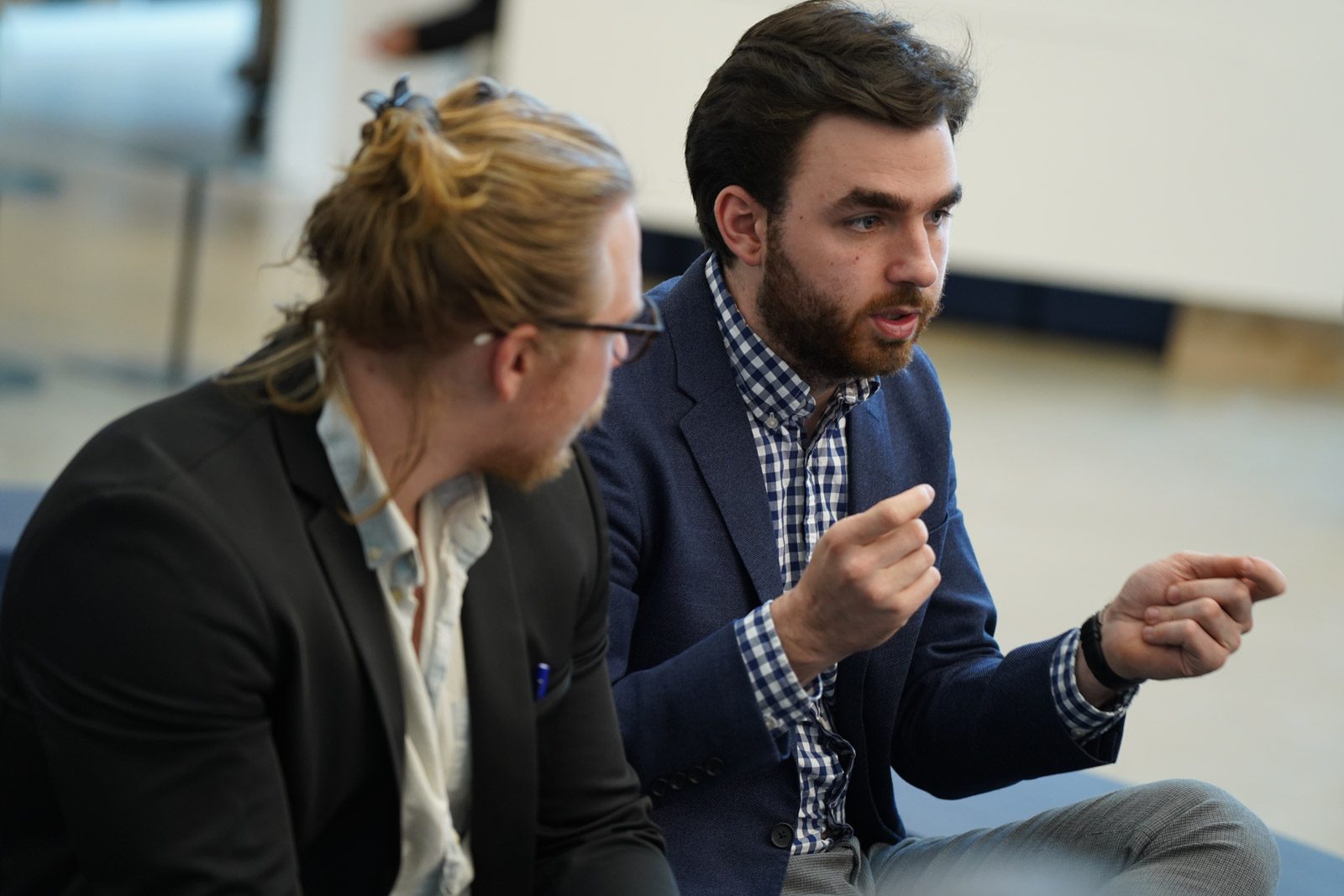
“The 5-Seminar-Strong review is unique in its comprehensive overview of our program,” said M.S. student Ryan Craney. “Rather than focusing on one project or idea, we look at the work as a whole to identify trends or areas of improvement. This type of review, while different from the rest of the college, helps the Digital and Material Technologies program continue to adapt to the continuously advancing world of robotics and software.”
The engagement courses (the DMT program’s version of studio) are very diverse in their curriculum, giving students a broad exploration of new and innovative uses of their respective technologies. “This required that I constantly question the role of advanced fabrication methods in architectural design and construction,” Craney said. “It is easy to automate processes already done by humans, but things get tricky when trying to generate entirely new methods of computation and fabrication. In order to accomplish this, we were all pushed outside of our comfort zone and this played a large role in our development throughout the semester.”
The five courses involved in the review were:
Robotic Engagement (Wes McGee, ARCH 702)
This course covers topics related to hardware, fabrication, and materials as related to advancements in digital fabrication. Beyond teaching the mechanics of specific machinery, the course develops a framework for understanding exemplary projects in the field with an understanding of different design methodologies and their relations to project development and fabrication.
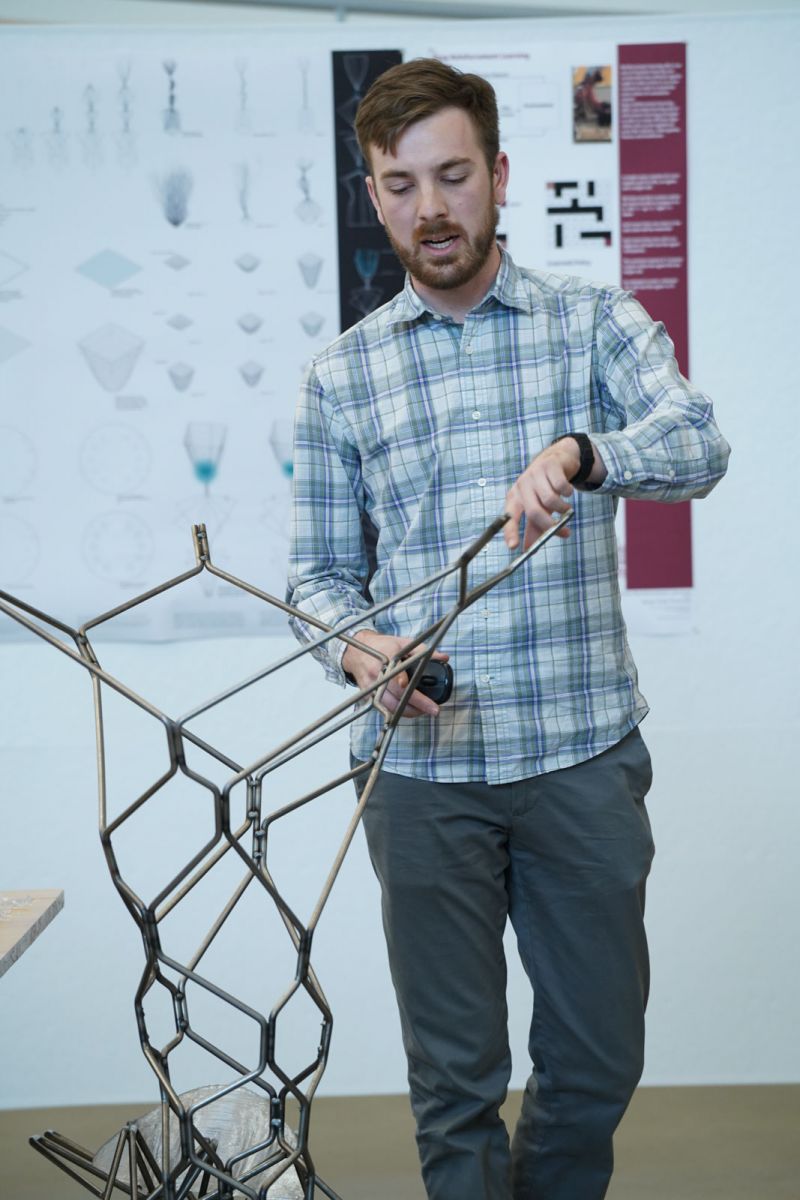
Systems Engagement (Arash Adel, ARCH 703)
This technique-based course covers topics related to technology integration within high performance material systems. Specific areas of study include smart materials, integration with sensing and actuation technologies, interactive systems and environmental response. Coursework combines both material explorations, as well as digital simulations.
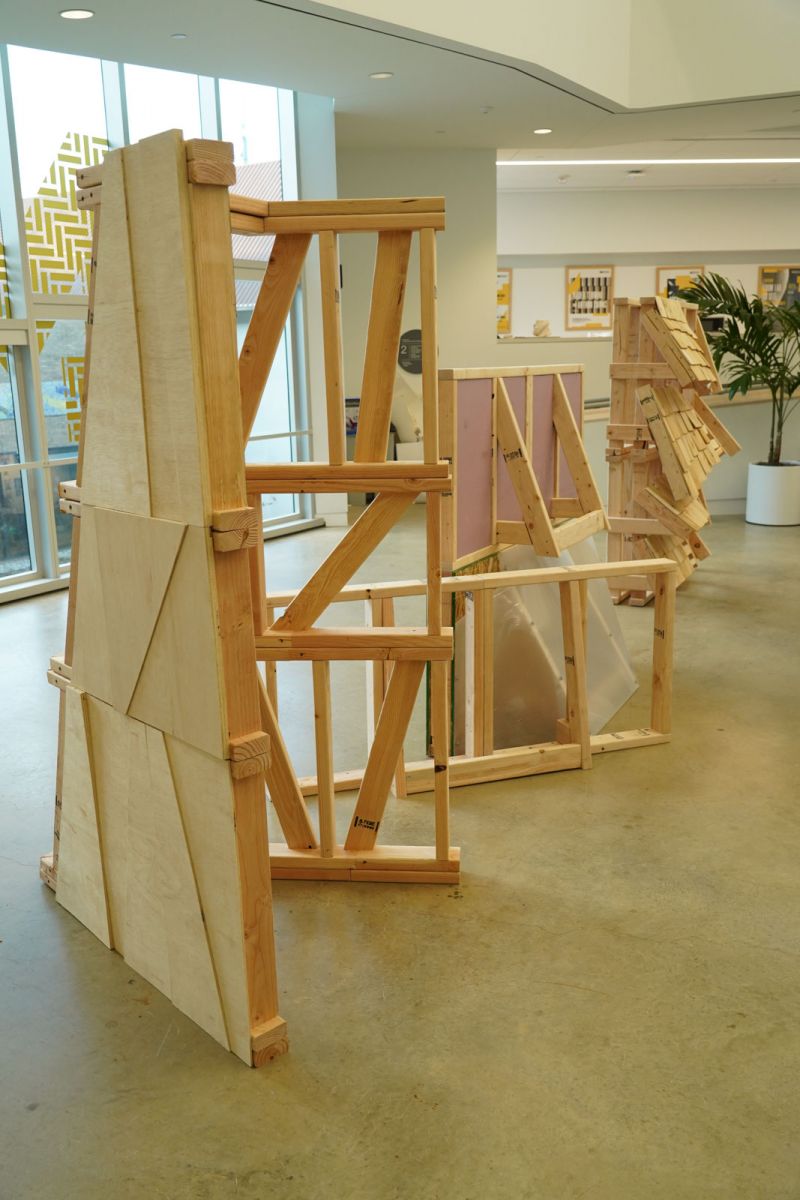
Material Engagement (Mania Aghaei Meibodi, ARCH 707)
This technique-based course covers topics related to material properties, behavior, performance, tooling, and manufacturing techniques. The course focuses, in part, on physical explorations in working processes related to the development of material assemblies, assessment of their behavior and effects, and their potential applications.
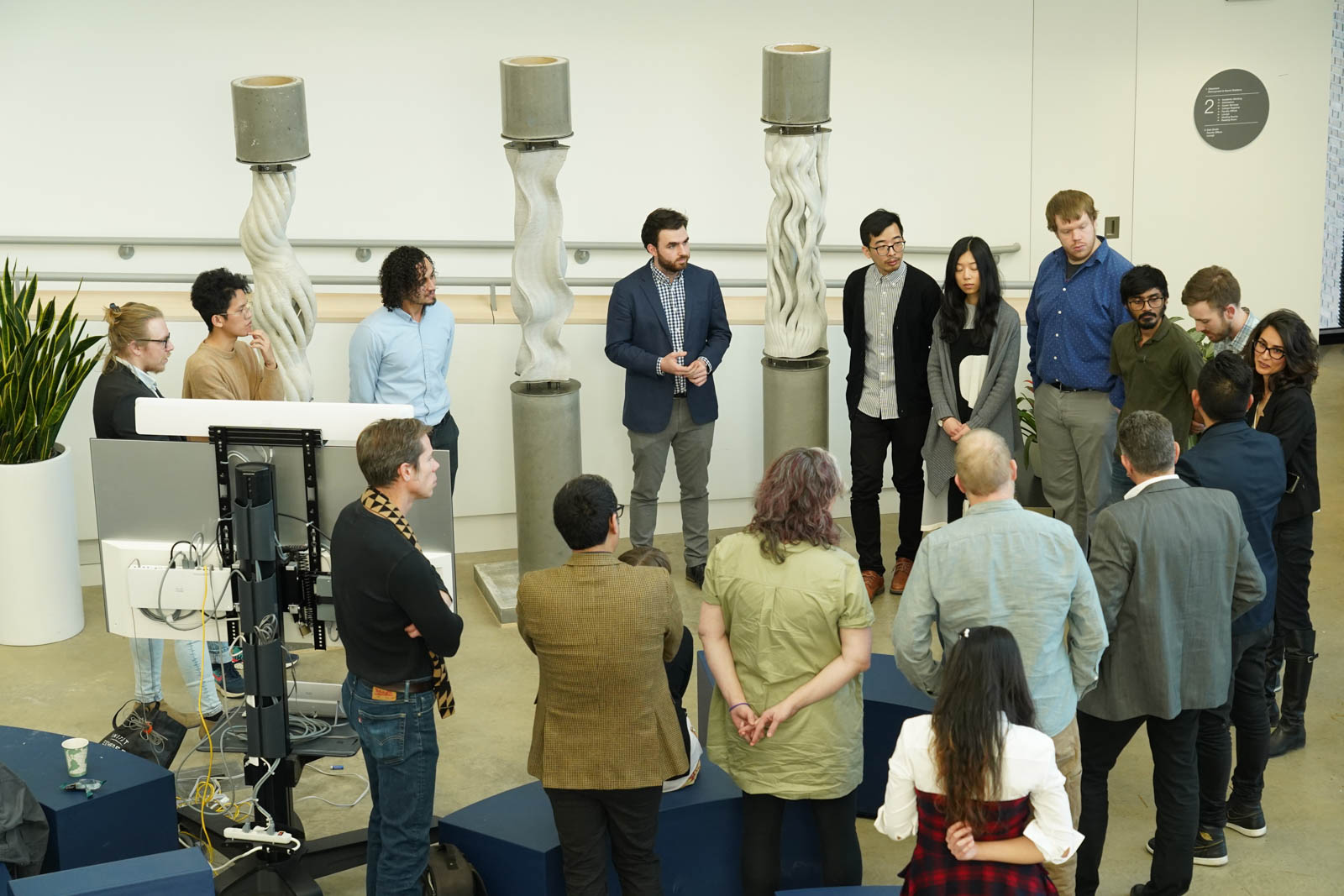
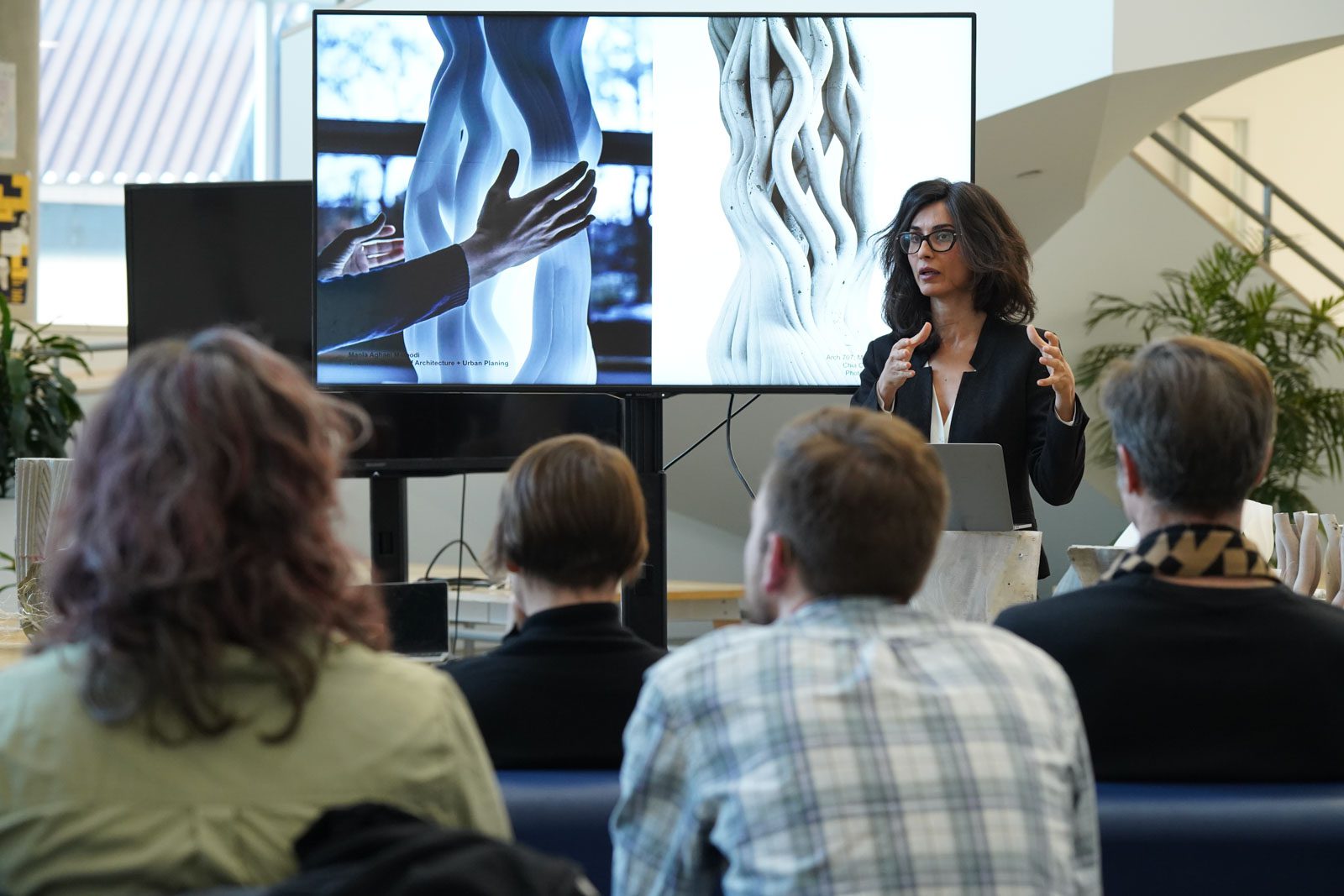
Virtual Engagement (Glenn Wilcox, ARCH 708)
This seminar covers topics related to digital design practices that cover a range of topics that include generative design, algorithmic design, scripting, parametric modeling, BIM, simulation, and analysis. Beyond the introduction to specific software packages, the course develops a framework for understanding exemplary projects in the field with an understanding of different design methodologies and their relation to geometry and workflow.
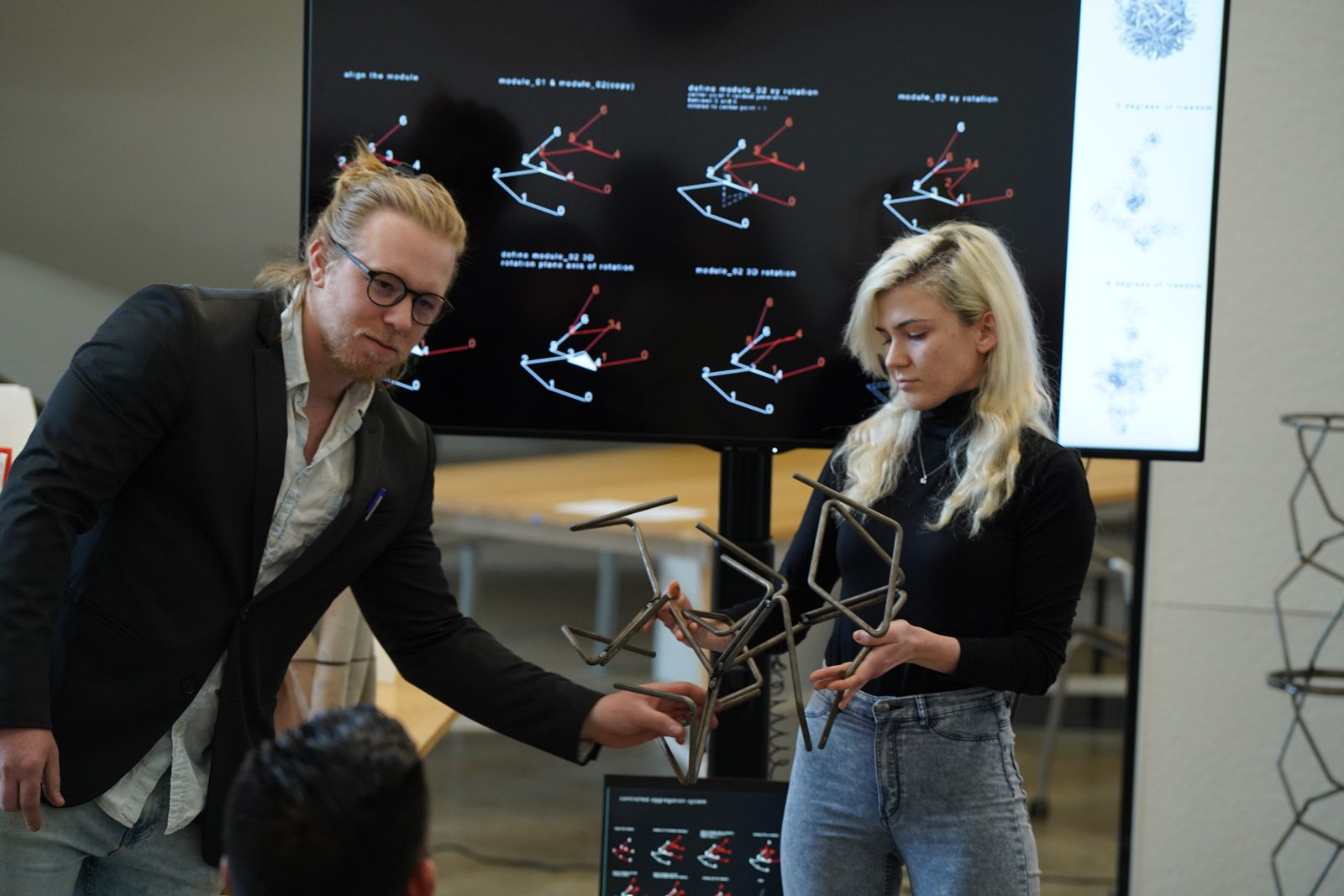
Theory of Digital and Material Technologies (Kathy Velikov, ARCH 701)
The course will introduce topics and precedents as a means of giving insight to research methods related to digital and material technologies. Participants should complete the course with an understanding of crafting a research proposal and positing their propositions within a broader field of architectural design/research.
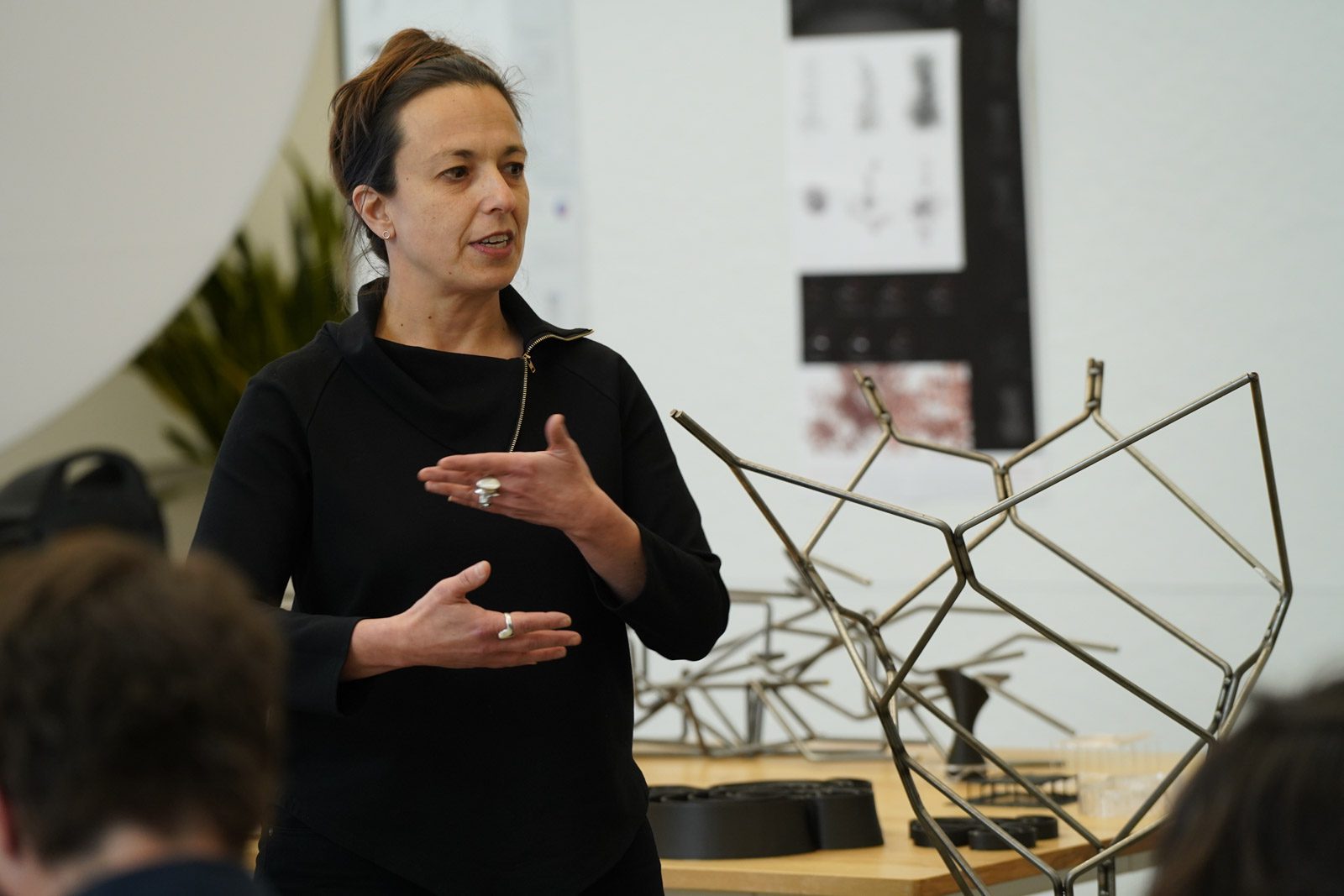
The review also teed up the winter capstone, which will build upon the investigations initiated in ARCH 708: System Engagement, in the fall. “These investigations primarily focused on a conceptual framework for the digital practice of architecture, positioning digital manufacturing as an integral part of the design process,” said Arash Adel, a postdoctoral fellow who is coordinating the capstone. “The discussions started and skills developed this semester will be further advanced in capstone by engaging the industry to learn about real-world construction and investigate how digital design and manufacturing can have a meaningful impact. Through the course, the students will employ the state-of-the-art robotic fabrication facilities at Taubman College coupled with integrative computational design methods to apply the acquired knowledge in the design and realization of a novel timber pavilion.”
Coming out of the 5-Seminar-Strong Review, students feel ready to tackle next semester’s capstone challenge, said Carl Eppinger, an M.S. student: “The five courses taught during the fall term of the MS DMT program give a very comprehensive insight into both the material side and the computational side of architectural research. Furthermore, the topics discussed during the theory class and the visit to the ACADIA conference give us the possibility to emerge ourselves into current research and approach our capstone with a good idea of what is currently being researched.”
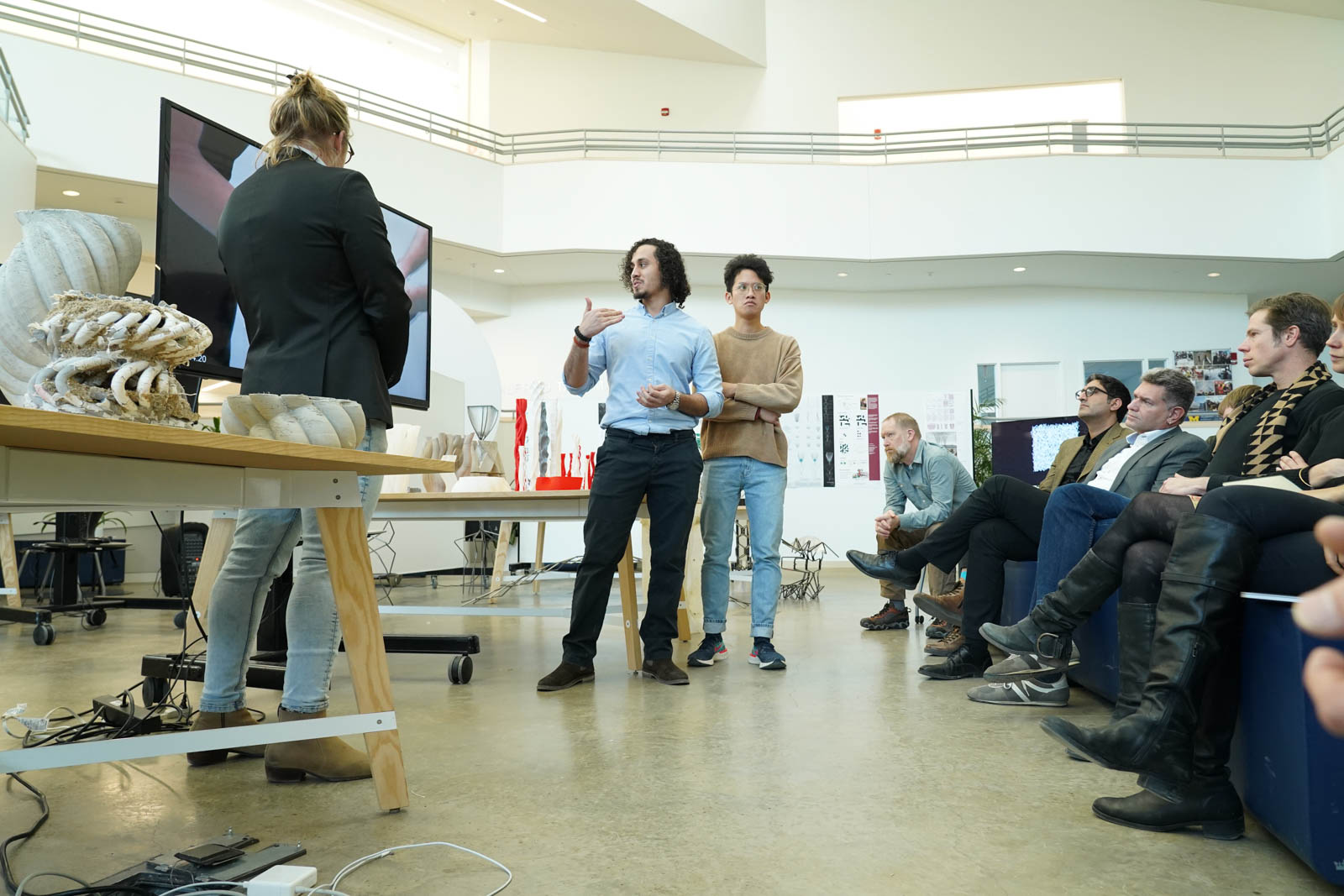
And while the 5-Seminar-Strong review can be an intense experience, it also encapsulates what makes Taubman College a unique place to learn, Adel noted: “The vibe of the 5-Seminar-Strong review reflected the depth and the breadth of the collective knowledge of Taubman College as a whole. In particular, seeing all the works from the Engagement Seminars highlighted the strength of the program in the field of computational design and digital fabrication.”

